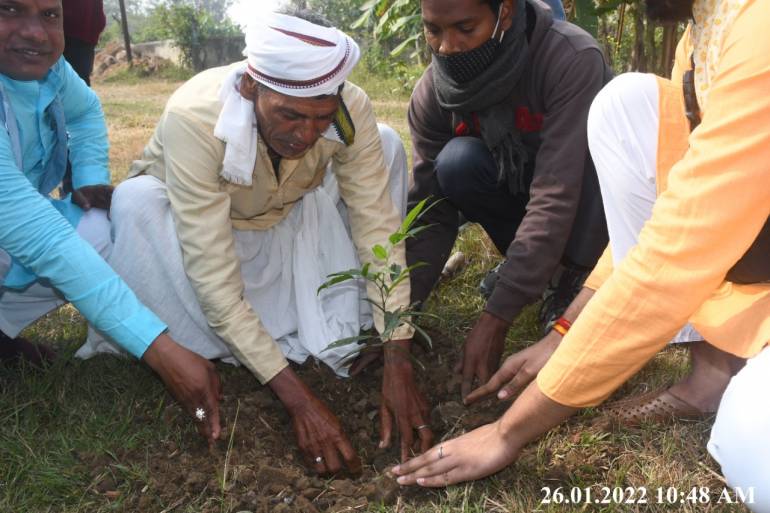Illiterate lower caste man builds a 5 km canal, receives prestigious award

A leading Jesuit college in India's Bihar state has given its prestigious 'Pride of Bihar' award to an illiterate Dalit man who single-handedly dug a five-kilometer canal over rocky terrain to improve the water table of his village.
St. Xavier's College of Management & Technology (SXCMT) Patna honoured Laungi Manjhi of the Bhuiya caste on January 26 to mark India's 73rd Republic Day.
Manjhi is a 'musahar'- or rat eater- the name for a community on the lowest rung of Bihar's caste-striated society.
"Laungi Manjhi constructed a five-kilometer long canal to channel the rainwater from the mountains to his village so that all the farmers can use the water for irrigation. It took about 30 years for him to complete the selfless project while being ridiculed by the villagers. To honour this great person, we have invited him to be the Chief Guest of Republic Day Celebrations on January 26," said SXCMT Principal and Jesuit Father T. Nishaant.
The award comprised a shawl, a memento and a cheque of Indian Rupees one lakh (USD 1331.12).
In local conversations, fifty-year-old Manjhi from Jamunia village in Gaya district is called the 'Canal Man.' Jamunia is a village at the foot of Bangayita Hill Range. It is a wooded and hilly area.
"Longi Manjhi is a visionary with determination. Even a casual observer would note the strength of his determination so visible in his eyes and on his face. Thirty years ago, his friends tried to persuade him to migrate along with them to cities in search of employment. Longi Manjhi did not budge. For him, migration in distress is not a solution," says Jesuit Social Action director of Patna Province Father Anto Joseph, SJ.
"Once he shared his dream with his friends: 'why not we bring water from the hills to our fields… If we have water for irrigation, we can cultivate our land…'. His friends laughed at him. 'Are you mad?' His friends went to the cities for work; and he went to the hills with his goats, but with a dream of collecting all the water from the hills and channeling it to their fields," Father Anto said, recommending that Laungi Manjhi was a fit candidate for 'The Pride of Bihar' award.
In his simple Maghi dialect, Manjhi recounted how his wife and family disapproved of his 'good for nothing' obsession to carve out a channel from the hills.
He toiled alone when his own family and villagers mocked him: "You are mad," they said. "Earn something if you want to eat," said his family. The discouragements and the hardships of life did not deter him.
By 2019, he succeeded in to bring water from the hills to one of the neighbouring villages. Since then, his work has been known to the outside world through media reports. His story spread through the villages, and he became the pride of the place.
Say Father Anto: "In other words, he lived a development model which focuses on developing, building and harnessing local resources for the wellbeing of the people."
"Nobody ever invited me to unfurl a national flag before," said Manjhi, who engaged with the gathered audience and those online in his village dialect. Manjhi appealed to the gathering to shun parochial boundaries and work together for the betterment of their society.
Radio Veritas Asia (RVA), a media platform of the Catholic Church, aims to share Christ. RVA started in 1969 as a continental Catholic radio station to serve Asian countries in their respective local language, thus earning the tag “the Voice of Asian Christianity.” Responding to the emerging context, RVA embraced media platforms to connect with the global Asian audience via its 21 language websites and various social media platforms.

















- Reply
Permalink